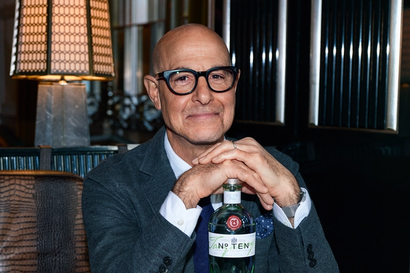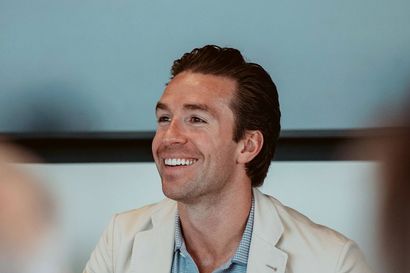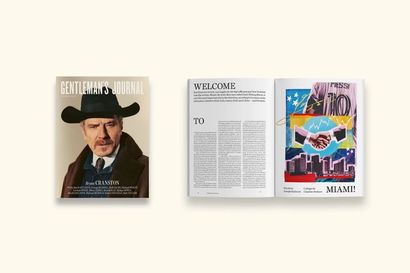Whether you’re a superhero or a swim short brand, a good origin story goes a long way. And Orlebar Brown, the British purveyor of high-end pool wear, just so happens to have one.
The company’s founder, Adam Brown, was on holiday in 2005 with a group of friends when he noticed that there were big differences, apart from the obvious, between women’s and men’s swimwear.
The women looked great in fashionable, well-fitting garments. And, with just a few tweaks, could easily transition from poolside to barstool, or lunch reservation. The men, on the other hand, didn’t look so hot. Back then our choices were either some variation on budgie smugglers, baggy surfer’s board shorts (although surf style has since upped its game considerably), or mid-length trunks with an unflattering elastic waist.
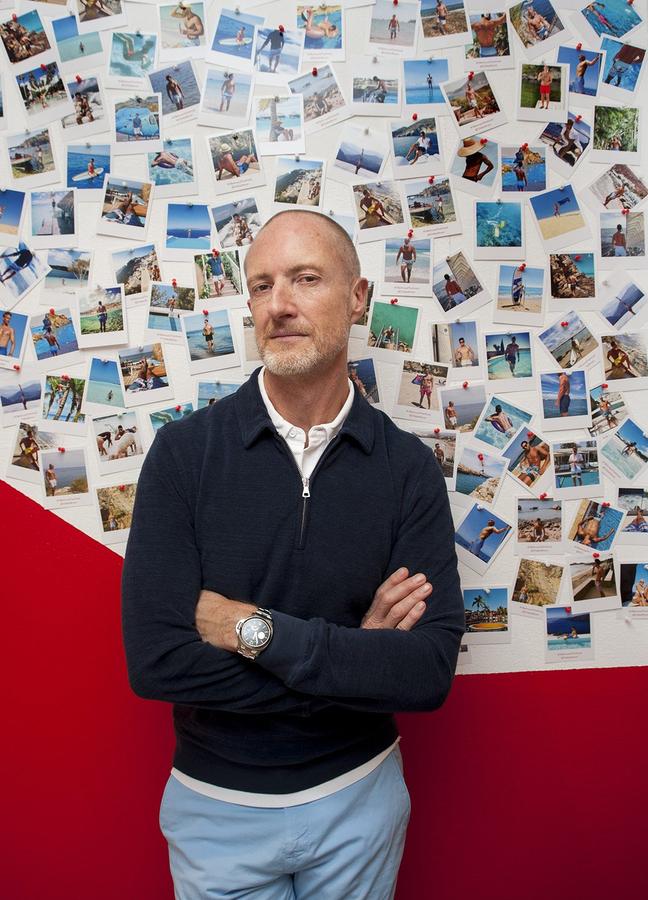
Where did the inspiration come from?
What if, Brown wondered, men could wear ‘shorts that you can swim in’, rather than ‘swim shorts’ – garments that fitted properly, with side fasteners and a construction that owed more to the heritage of Savile Row tailoring than it did to mass market styles?
Fast forward a decade or so and that hunch has blossomed into something much more tangible. Customers range from James Bond (Daniel Craig sported a pair in Skyfall) to David Cameron.
"Revenue for the last financial year was £20m, Brown expects it to be £23m or £25m in this one..."
Today, the brand’s focal point remains its men’s swim shorts, but there are now 300 products, including sunglasses, shoes, polo shirts, chinos and women’s and children’s lines. There are 23 stores around the world. Revenue for the last financial year was £20m, Brown expects it to be £23m or £25m in this one.
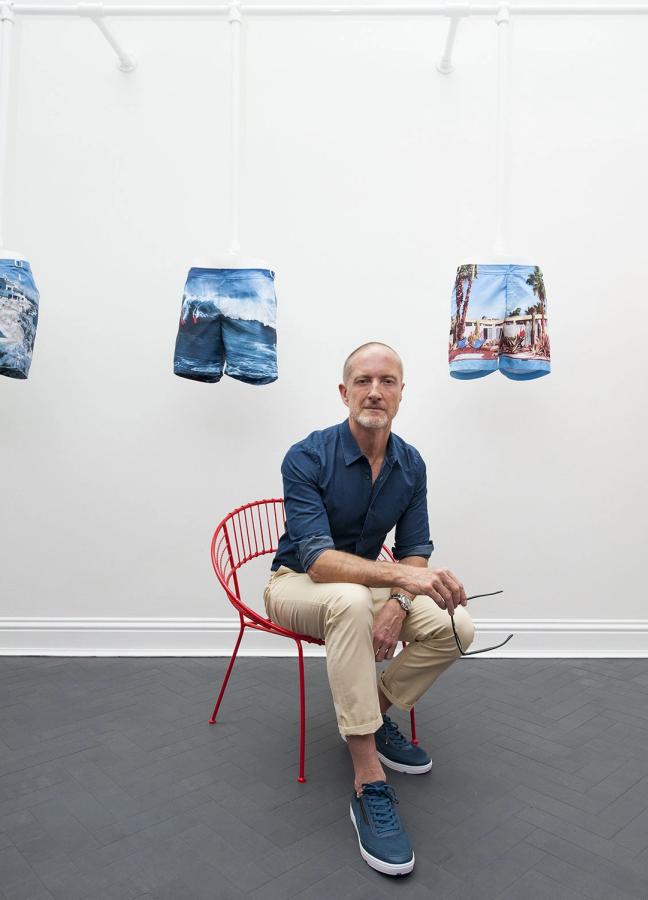
How did it all begin?
It all began with modest expectations. “It was just the excitement of bringing an idea to life,” says Brown when GJ visits OB’s Notting Hill store. “I took the view that even if it didn’t work, I could sell the product on a market stall at cost and recoup my money.”
Until then he had no retail or fashion industry experience, having moved from major donor fundraising to a second career as a photographer.“I was a rubbish photographer,” he says. “I had been photographing someone’s kitten in their dining room and I thought: ‘I have to draw a line. This is going absolutely nowhere.’”
"I had been photographing someone’s kitten in their dining room and I thought, "this is going absolutely nowhere...’”
But it wasn’t until Orlebar Brown had been up and running for a couple of years that he thought it might actually take off. “I managed to get us into Selfridges. That is the moment when you have big footfall and volume”. After six or seven months, he started to think it could work.
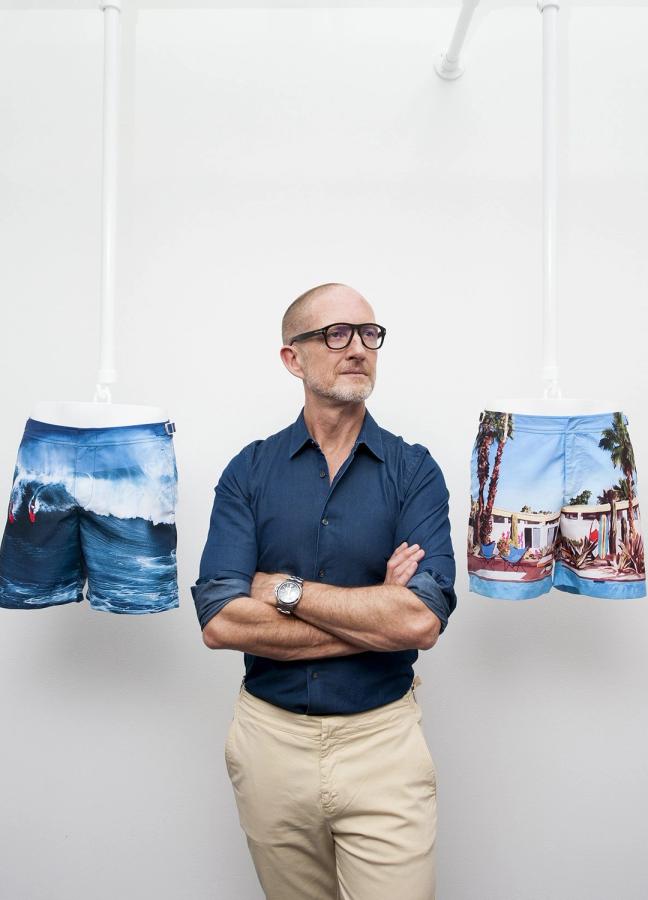
What has been the secret to success?
In the early days of the business he retrieved stock from a storage unit in Fulham Broadway, packaged it and posted it to customers himself. He describes working out how to find fabric suppliers, factories and methods of shipping as “a series of challenges you work your way through”.
“I’d recommend anyone to go through that,” he adds. “It stands you in good stead. And I love to be totally in control.” But he puts the subsequent growth of the business down to “knowing what you’re good at and what you’re bad at, letting go and bringing other people in.”
"The secret to success? Knowing what you’re good at and what you’re bad at, letting go and bringing other people in...”
That the land of knotted handkerchiefs and pasty legs should be home to a brand that provides high-end beach and poolside clothing to the glamorous, sun-kissed denizens of warmer climes might seem faintly ridiculous.
But it has never been an issue for Brown, who was born in Kuala Lumpur and spent much of his early childhood in Asia, thanks to his father’s career in marketing for brands such as Johnnie Walker.
What does the future hold?
When I ask about the future of the business and what Brown might have up his artfully tailored sleeve, he floats the idea of beach clubs dotted around the world. “Why wouldn’t you go to an Orlebar Brown beach club and have your kite surfing lesson, go on your jet ski, play bat and ball, play quoits, take a paddle-boarding or sailing class? I would love to start exploring that world.”
Away from work, Brown fits in an hour-long fitness class before getting in to the office each day, and tries to go “somewhere interesting” on holiday with his husband, PR supremo Tom Konig Oppenheimer, every few months. Hiking among Chilean volcanoes was a recent excursion.
“Why wouldn’t you go to an Orlebar Brown beach club and have your kite surfing lesson, go on your jet ski, play bat and ball, take a paddle-boarding or sailing class?"
Would he like more time to do all that? The behaviour of the large fashion houses in recent years and the stellar growth of OB suggests that it could be a prime acquisition target. “At some point there will be investment needs for a business to grow in this market,” says Brown. “So, I don’t know. But I’m clearly never going to rule it out.”
What he will rule out, however, is moving on to yet another different career. This one, his third, has proved, appropriately enough, to be a good fit.
“Style happens naturally”: In conversation with Diego Della Valle…
Become a Gentleman’s Journal member. Find out more here.

Become a Gentleman’s Journal Member?
Like the Gentleman’s Journal? Why not join the Clubhouse, a special kind of private club where members receive offers and experiences from hand-picked, premium brands. You will also receive invites to exclusive events, the quarterly print magazine delivered directly to your door and your own membership card.
